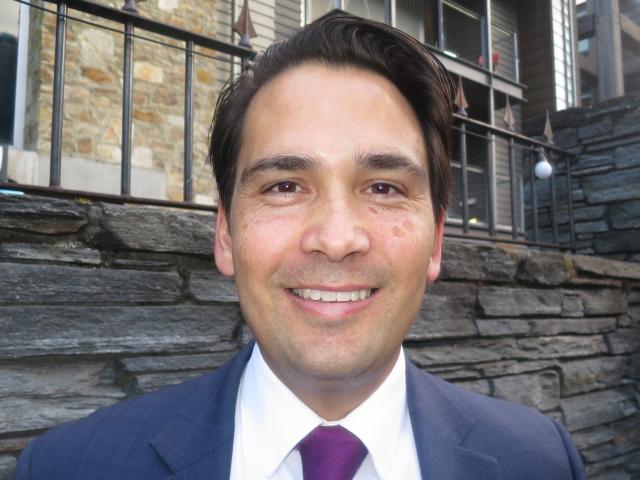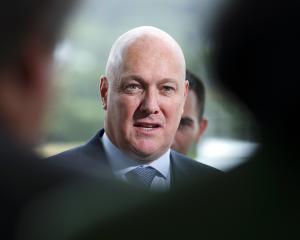
Paula Bennett was retained as deputy leader, meaning both the leader and deputy identify as Maori. This is a first for National and another sign of New Zealand politics being able to cope with youth, gender and diversity.
Although most will focus on the difficult job Mr Bridges will have of putting Prime Minister Jacinda Ardern off her stride, the new leader will now face an equally challenging task of selecting his new front bench.
To stamp his authority on the caucus, Mr Bridges will have to elevate supporters to positions of authority and that will mean the end for some supporters of the other four candidates.
Mr Bridges was always likely to be ahead on the voting, despite the strong public showing of Judith Collins. Many outside of caucus saw Ms Collins as the perfect foil for the stardust Ms Ardern continues to sprinkle over New Zealand politics. New Zealand has never had a leader like Ms Ardern and Mr Bridges will need to tread cleverly to dent her image with voters.
His best chance of damaging the Labour-New Zealand First Government is when Ms Ardern goes on maternity leave, puttng NZ First leader and Deputy Prime Minister Winston Peters in charge. Mr Bridges entered Parliament by winning Tauranga from Mr Peters.
No overhaul of National's policies is expected under Mr Bridges, but he would be foolish to ignore voters' appetite for change. Despite former leader Bill English leading National to the largest percentage of votes in September, National failed to form a government.
Mr Bridges should now be considering touring some of the largest areas of National support to show members he is up to the task. To do that successfully, he needs a team around him on the front bench he can trust to keep the Government on notice.
National finance spokesman Steven Joyce, who was one of the four failed leadership candidates, will now be considering what contribution he can make to the party.
Mr Bridges scored impressively as the new Government failed to secure, before the House opened, the unopposed election of Trevor Mallard as Speaker. Mr Bridges managed to get National's influence on the crucial select committee process extended beyond that which Labour was comfortable with.
Retaining Mrs Bennett as his deputy is a shrewd move by Mr Bridges. Mrs Bennett is popular among grassroots National supporters. If anything needs smoothing over within the paid membership, she will prove a useful ally for Mr Bridges.
In another development, Ron Mark was toppled as NZ First deputy leader and replaced by Fletcher Tabuteau. Mr Peters will have had a major say in who he wants as his deputy.
Five leaders or deputy leaders of political parties are now Maori. New Zealand has a young female prime minister and a gay finance minister in Grant Robertson - diversity indeed.
The Green Party will soon elect its female co-leader to replace Metiria Turei, who is no longer in Parliament. There is a sea-change within the major parties represented in the House, which can only be healthy.
Mr Bridges says his focus as leader will be ensuring National builds on the policies to improve the lives of New Zealanders.
The caucus has an incredible depth of talent and abundant energy, which is why National continues to enjoy so much support. Mr Bridges says the Government is big on lofty intentions, but struggling to turn those into real gains for New Zealanders.
National is behind Labour in opinion polls for the first time in a decade. The election of a new leader should provide a polling boost and will be the first indication National has made the right decision.












